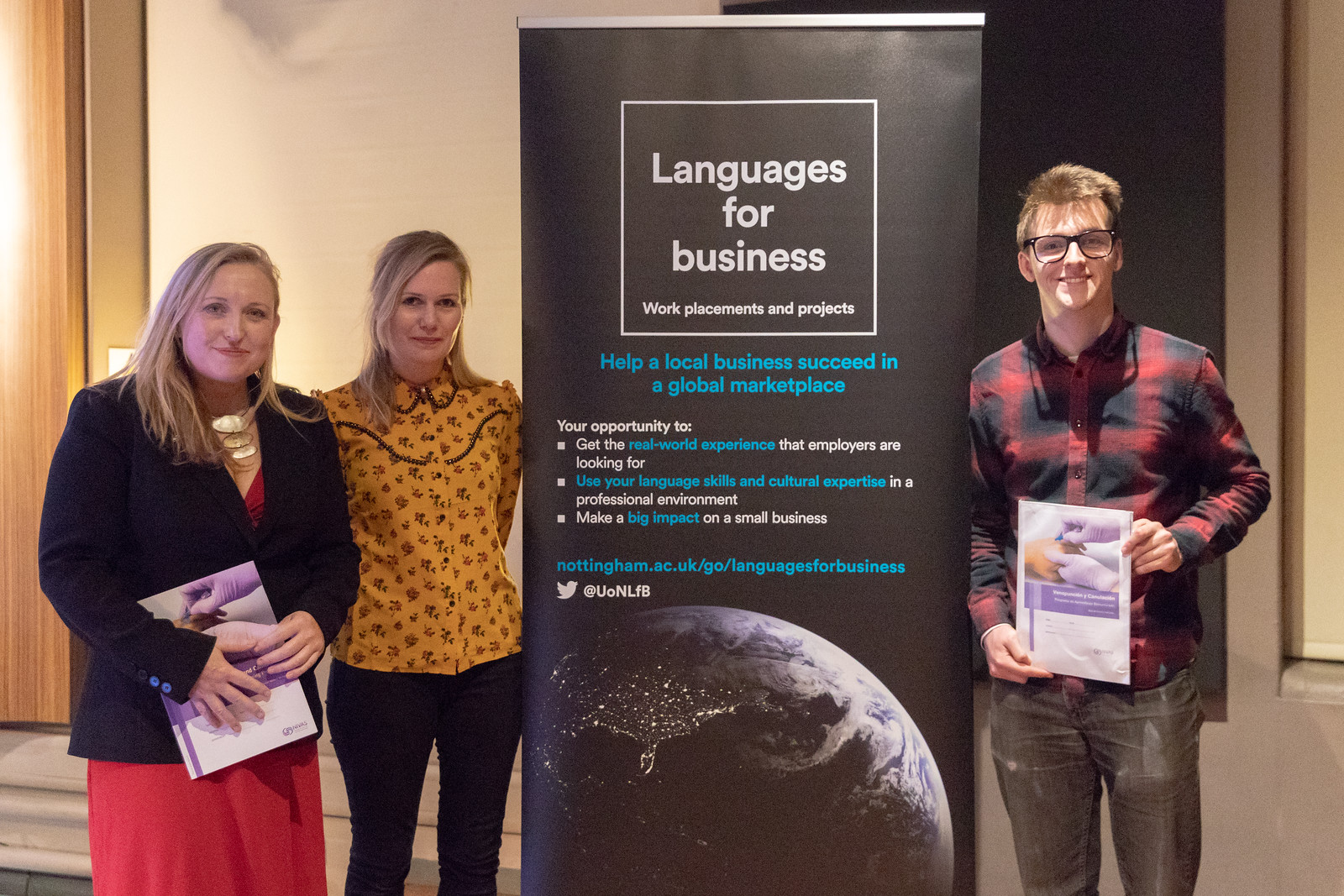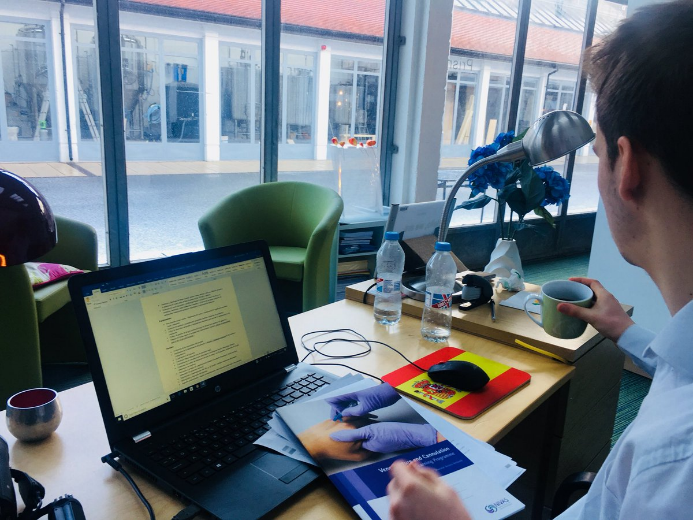
11/06/2018, by CLAS
Can’t find the right words?
Languages for Business provides language and cultural support for local businesses looking to internationalise, primarily through student placements.
The scheme is based within The School of CLAS (although open to students across the University) and works with students who are either studying on a language or translation course, or students who are native speakers.
One of the main challenges our students have faced during their placements has been translating the untranslatable. They’re proving that translation and interpretation requires a lot of creativity that Google Translate just can’t compete with. For example, many modern, young companies are using playful language in their marketing (I’m thinking Innocent Smoothies, Graze, Buzzfeed). They’re using youth slang. They’re using humour. If their target market is aged 16-24, they’re saying ‘We’re here for this’, ‘I’m there for that’ and repeating the word ‘extra’ a lot and the rest of the population has no idea why. I barely know why. How are these things even translated? Auto-translator websites seriously wouldn’t have a clue. I tried to do my German GCSE coursework through one such site and my teacher was so not there for it.
If a company wants to expand, reach out and communicate with international clients, they need to consider how translation just isn’t one size fits all. The Languages for Business placements help students experience the subtle and unexpected complexities of translating and interpreting for a business that has its own defined target audience where results are measurable by profit.
While on holiday to Majorca last year I accidentally logged on to Buzzfeed Espanya and it’s been stuck like that ever since, just auto-translating into English. Today I see the headline: 16 tweets from people who ‘flicked fire’ in the Eurovision semi-final” or “16 tuits de personas a las que les flipó ‘Fuego’ en la semifinal de Eurovisión” in its original language. I have no idea what ‘flicking fire’ means. Is it something the Spanish 16-24 year olds would know? Could our CLAS Spanish students shed some light on this?
BA French and Hispanic Studies student Richard did his placement working with vein cannulation specialists, Vein Train. Their main business tagline mentions cannulation failure rates being “The elephant in the room” and Richard was there to point out that idioms just don’t translate seamlessly between languages:
“As translators, we’ve all experienced moments where we have to tackle something that’s just… untranslatable. Whether it be an idiom, a pun or wordplay, or a specific cultural reference only understood by speakers from that country, it is the job of translators to unpick these conundrums so a target audience can understand.
So how do you do it?
The first thing to do is not to panic, and certainly not to translate word for word! My approach would be to pick apart what’s being said: what exactly is the author trying to say and how? If it’s a pun, what are the two or more things that are being combined for humorous effect? If it’s an idiom, try to find the equivalent in the other language. If there isn’t one, try to accurately translate the meaning. Suddenly these untranslatable things don’t seem so terrifying.”
For me, a seriously monolingual person, it’s difficult to imagine how nonsensical talking seamlessly about elephants and cannulas would sound in Spanish. I wish I could speak Portuguese just to say “Pagar o pato” which translates as “Pay the duck.” Apparently, it means taking the blame for something you didn’t do and we need to make it a thing here. Not just because Nottingham is the land of ducks, or ‘duck-ehs’.
Jodie Thompson works with the ERDF funded Languages for Business scheme, based in CLAS. The scheme facilitates placements for students with language translation skills or cultural expertise within Nottinghamshire & Derbyshire businesses. Typical placements are between 40-50 hours spread across 4-8 weeks.
No comments yet, fill out a comment to be the first


Leave a Reply